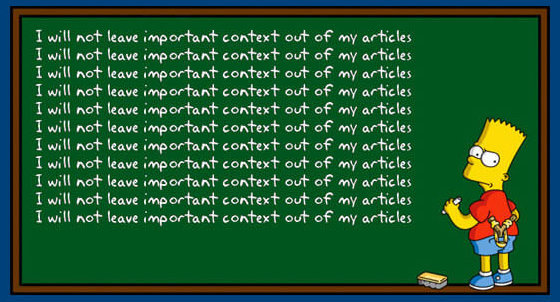Fond as I am of coining fun or memorable phrases, and amused as I am by the social justice Left’s language gymnastics, I’ve developed a tendency to note the really good ones, of both the pithy and roll-your-eyes sort. Among my favorites of the pithy sort are George Will’s “synthetic outrage” and David Mamet’s “socialism is the abdication of responsibility. I’ve shared these and others here on the blog, and elsewhere in my political perambulations, over the years. Some rise to the level of aphorism, others are just useful pointers or shorthand.
Today, I found a new one, that’s starkly apt in the context of the COVID-19 shut-down. It crossed my path via Reason’s “Roundup,” in a mention of a discussion of an increasingly popular bit of Internet slang, “Karen.” If you haven’t borne witness to the “Karen” phenomenon, I’ll leave the joy of discovery to you and your search engine. The interesting part, for me, was the phrase “collapsing context,”
It’s impossible to pin down “Karen” because the term has multiple meanings, varying according to context. The reason “Karen” is meant to be objectionable depends who’s having the conversation about her and why. With the internet collapsing context (emphasis mine), it isn’t always clear.
There’s been some ado about the Supreme Court conducting its current session under WFH (work-from-home) and social-distancing guidelines, with the attorneys and Justices communicating by phone, and with the proceedings being live-streamed for the first time (at least in my recollection). This tele-jurisprudence has muddled interactions, and led to longer-than-normal sessions, because the visual cues, body language, and other nonverbal communications that are integral parts of our normal interactions are unavailable. This lack of visual communication, which often provides context for a statement, has to be offset with more words and more attention to verbal inflections.
What would happen, though, if verbal inflections also go away?
Welcome to social media.
Without visual cues, and without vocal inflection, context becomes even more difficult to ascertain. The way to make up for this is with more words, more carefully chosen words, and more elaborate explanations. This is one reason I tend to write thousand-word blog posts instead of…
Twitter.
Gregg “Opie” Hughes, erstwhile shock jock and blonder half of the Opie and Anthony show, once referred to Twitter as the worst place in the world. It’s almost the pinnacle of collapsing context. Short comments, often written quickly and without deep thought, with neither body language nor vocal inflection to contextualize them.
Another aphorism, “Nature abhors a vacuum,” rounds out the story. Originally declared by none other than Aristotle himself, it is true in both the physical world sense and in the context of human thought and interaction. Absent context and absent all the extra information transmitted by means other than words, people are prone to “fill in the blanks” according to their own predilections, biases, and preconceptions. Absent proximity, people have a very easy time dehumanizing the person whose words they’re reading. And, absent instant feedback, people have a very easy time being, to be blunt, contrarian assholes, especially when they hear something that isn’t 100% aligned with how they already think or believe. If you have no risk of seeing someone’s face show hurt from your harsh words (or have no risk of getting punched in the face for being a dick), you’ll find it easier and easier to snipe at people.
Compounding all this is the “thirstiness” for attention that social media drives, with its “likes,” shares, retweets, and other forms of validation. Compounding it even further is the enormous competition created by the ease with which anyone can voice an opinion. We’ve witnessed how the only way to truly catch attention is to be outrageous, extreme, and louder than everyone around you. This is easier in reaction than in origination, so we bear constant witness to atrocious comments and responses, ones that not only dehumanize the target, but exhibit the aforementioned synthetic outrage by deliberately finding the most twisted way to translate a (decontextualized) comment.
Even after the COVID crisis has passed, after we’ve achieved either herd immunity or sufficient immunization to reduce its impact to that of other, more “normal” maladies, I expect (and fear) that work-from-home and remote learning will stabilize at a higher fraction than before. New York’s Governor Cuomo is already talking about how the latter has demonstrated its viability, and that they could now “reimagine education.”
Apart from the massive issue that two-income parents would have with having to be at home with their kids instead of sending them off to school, there’s the matter of socialization. Kids learn to behave by interacting in person with each other, and social media has already had a bad impact on that learning. Imagine a generation of kids who’ve missed out on that socialization and contextualization of interactions. Sociopaths, the lot of them.
Humans are social creatures, not just in mental need, but in basic behavior. This is an ingrained reality, hard-wired into our DNA, and subject only to the (very slow, in relative terms) modifications of biological evolution. It’s why enforced social distancing is so depressing and reaction-inducing, it’s why solitary confinement is such a harsh form of punishment, and it’s why face-to-face interactions remain more effective and more efficient than anything technology might supplant them with. So much of what we communicate relies on context, and so much of that context relies on things other than words.


Active Comment Threads
Most Commented Posts
Universal Background Checks – A Back Door to Universal Registration
COVID Mask Follies
When Everything Is Illegal…
An Anti-Vax Inflection Point?
“Not In My Name”
The Great Social Media Crackup
War Comes Through The Overton Window
The First Rule of Italian Driving
Most Active Commenters